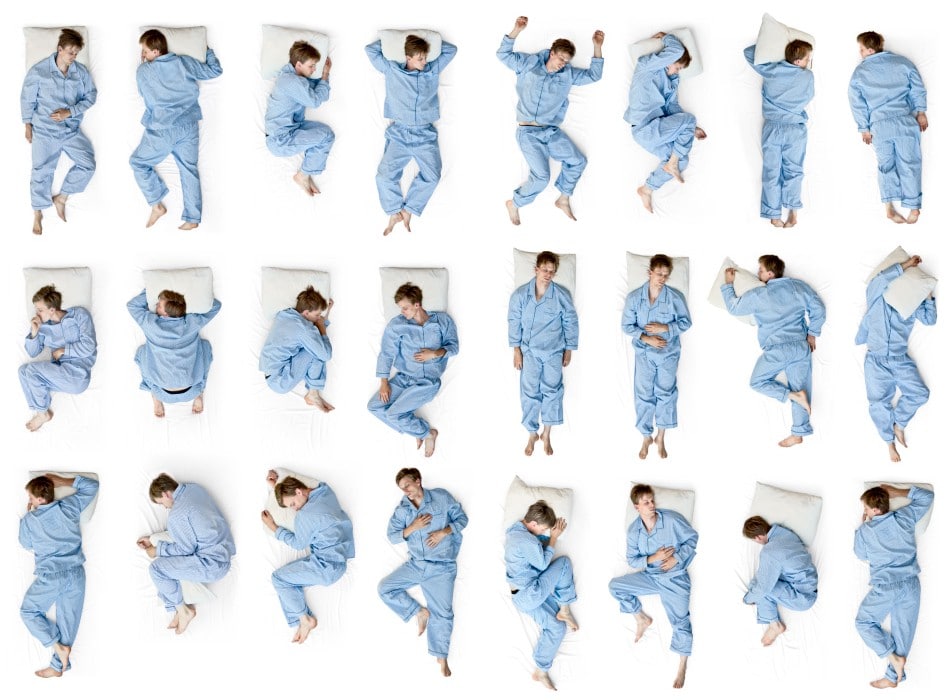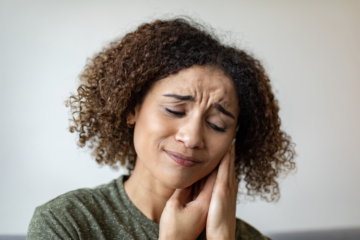I want you to take a moment to think about when you get into bed after a long day. You’ve been working, running errands, and cleaning up the house, trying to cram in a million things into too few hours. You are probably exhausted! As you imagine yourself getting comfortable and putting the stress of the day behind you, what position are you in? Are you curled up on your side? Sprawled out like a starfish? How about on your stomach?

Many people tend to find stomach sleeping as the most comfortable position and the only way they can fall asleep. If you are among the over 30% of Americans with neck or TMJ pain, you may want to reconsider. Stomach sleeping can lead to painful TMJ. For some, this may lead to waking up with so much tension that their jaw is locked. Others have pain in their teeth from clenching, tension headaches through their temples, or a sore neck with what feels like a “kink” or “crick.” This is usually not just a one off experience, but rather something that occurs a few days a week, worsening into a daily, dreadful occurrence.
Why Stomach Sleeping May Result in TMJ Disorders
While on your stomach, your jaw and neck are forced into severe, end range positions for extended periods of time. To compare, try turning your head as far as you can and holding this position for a few minutes. Probably doesn’t feel very good, right? Now realize that if you do sleep on your stomach, you are in that position for many hours at a time, every single night. See how that can be a pain in the neck?

Now, I do not want anyone to think that sleeping on your stomach is always going to lead to painful TMJ. A single night on your stomach is not going to doom you to a life of pain. The real culprit of this position typically only arises after months or years of practice. For those that are already suffering from neck or facial pain, it is an easy enough change that can make a fairly immediate impact on reducing your symptoms.
What to Do About Stomach Sleeping
If you currently have neck or jaw dysfunction, then stomach sleeping should be avoided. It should also be avoided if you are looking to reduce your chances of this experience.
Your sleeping position may not be the easiest thing for someone to change. Your first though may be, “I have no control over what I’m doing in my sleep.” You may also think, “I just happen to be on my stomach when I wake up.” Now, what you can control is the position you choose when you fall asleep. Even if you wake up on your stomach again, you were still able to reduce the irritation to your TMJ and neck. You may also readjust if you wake up at any point during the night, further reducing time on your stomach. The more time away from your stomach, the better!
If you are frustrated with waking up every morning sore and in pain, then it is worth getting away from stomach sleeping. If you are not a stomach sleeper or staying off of your stomach didn’t do the trick, stay tuned for more tips on how to manage your neck and orofacial pain. Please contact me if you have any questions and we can discuss your situation. Reach out through email, phone, or check us out on Instagram and Facebook.
(Image credit: The Bed and Sleep Blog from DownLinens)


